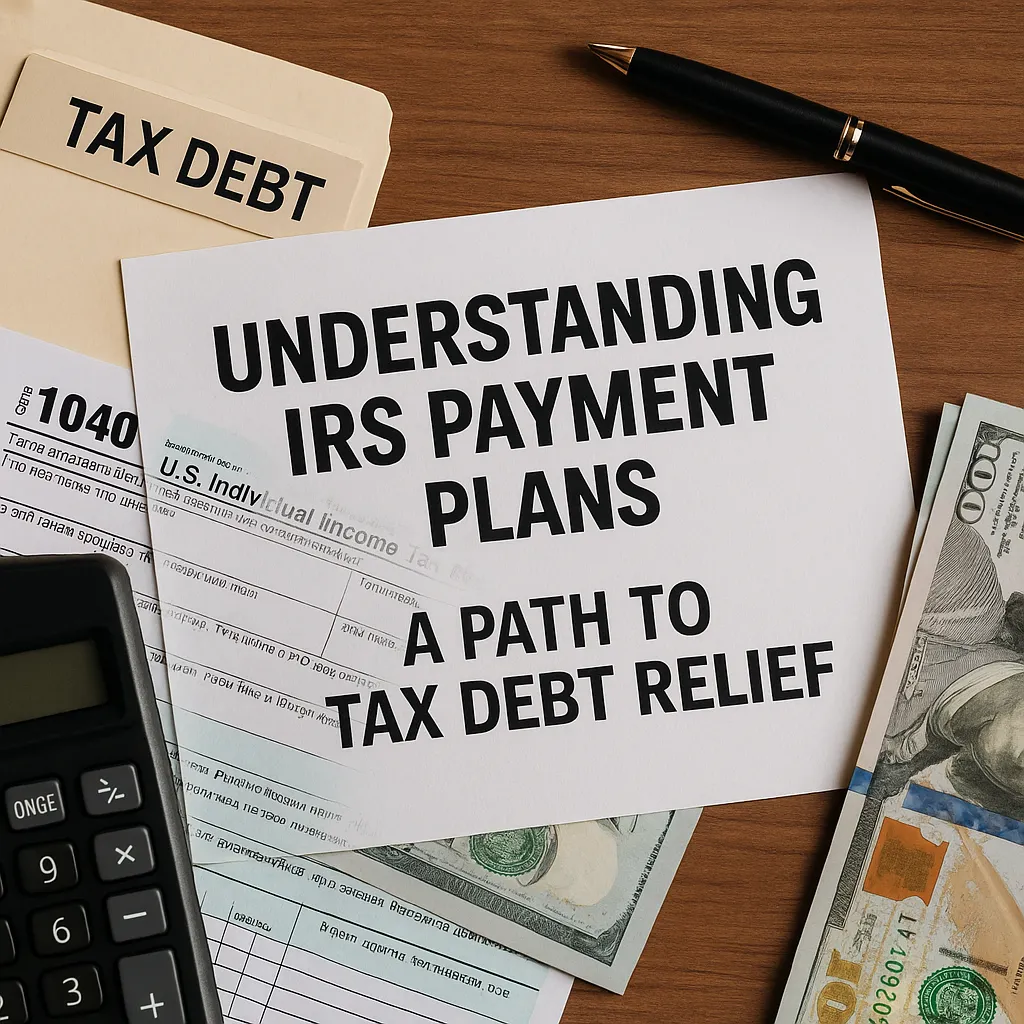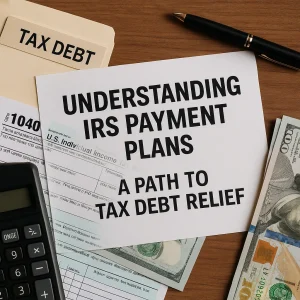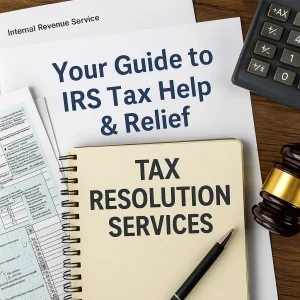Understanding IRS Payment Plans: A Path to Tax Debt Relief
If you’re facing mounting tax debt and unfiled returns, you’re not alone. The IRS understands that not everyone can pay their tax bills in full right away. That’s where IRS payment plans come in, they offer taxpayers a practical way to manage their obligations while avoiding severe penalties or enforcement actions. Whether you owe a few thousand dollars or are deep in debt, an IRS payment plan could be your first step toward lasting tax debt relief.
What Are IRS Payment Plans?
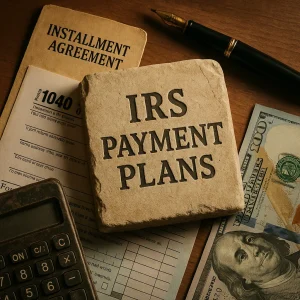
IRS payment plans, officially known as Installment Agreements, are arrangements that allow taxpayers to pay their debt over time in monthly installments. There are several types of payment plans available depending on how much you owe and how quickly you can pay it back. These plans prevent the IRS from pursuing aggressive collection tactics like wage garnishments or bank levies, as long as you remain compliant with the agreement.
Types of IRS Payment Plans
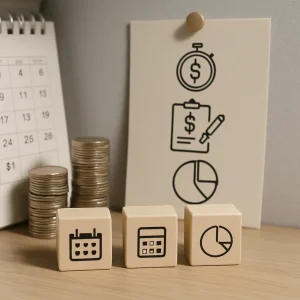
There are different types of IRS payment plans tailored to meet your financial needs. Understanding these options is crucial to selecting the one that aligns best with your situation.
Short-Term Payment Plan:
If you can pay your balance in 180 days or less and owe less than $100,000, this plan lets you avoid some of the application paperwork and fees.
Long-Term Installment Agreement:
For those who need more time, this monthly payment plan is designed for balances over $50,000 or those who require more than 180 days to pay.
Partial Payment Installment Agreement:
If you can’t pay the full amount, even over time, the IRS may accept smaller monthly payments until the statute of limitations expires.
Why Choose an IRS Payment Plan?
Enrolling in a payment plan with the IRS can help prevent more serious consequences, such as liens, levies, or wage garnishment. It also shows good faith and cooperation, which can benefit you during negotiations for other forms of tax debt relief. If you have unfiled tax returns, the IRS usually requires that you bring them up to date before approving a payment plan.

With proper documentation and realistic budgeting, many taxpayers find that IRS payment plans offer a manageable way to settle tax debt and avoid long-term financial damage.
How to Apply for an IRS Payment Plan
Applying for an IRS payment plan can be done online through the IRS website, by phone, or by submitting Form 9465. Before you apply, it’s essential to file all unfiled tax returns and review your financial situation. If your debt is substantial or you’re unsure about the process, working with a tax professional can ensure you get the best possible outcome.
Combining IRS Payment Plans with Other Tax Debt Relief Options
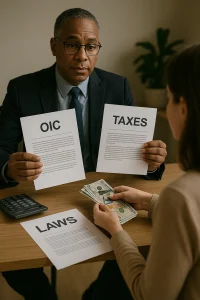
Sometimes, an IRS payment plan alone isn’t enough. Depending on your situation, you may benefit from other tax relief options like:
Offer in Compromise (OIC):
Settle tax debt for less than the full amount.
Currently Not Collectible (CNC):
Temporarily delay payment due to financial hardship.
Penalty Abatement:
Reduce or remove penalties if you have reasonable cause.
Common Pitfalls to Avoid When Setting Up IRS Payment Plans
While payment plans can be lifesaving, mismanaging them can lead to default and renewed IRS enforcement. Here are some common pitfalls to avoid:
- Missing a payment without communicating with the IRS
- Failing to file future tax returns on time
- Underreporting income or assets
- Ignoring IRS notices or deadlines
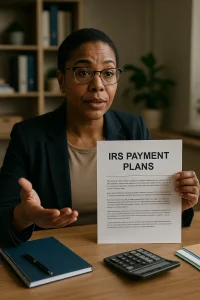
Stay proactive and keep your communication lines open with the IRS to ensure your plan remains active and beneficial.
When to Seek Professional Help
Handling IRS negotiations alone can be daunting, especially when unfiled tax returns or multiple years of debt are involved. A tax resolution specialist can help you:
- Navigate complex forms and IRS policies
- Negotiate for lower payments or alternative solutions
- Ensure your rights are protected throughout the process
At iHelpTaxes, we specialize in helping clients create realistic and affordable IRS payment plans, while also addressing underlying issues like unfiled returns and audits. Our team of experienced professionals is committed to making sure your case is handled with care and integrity.
Frequently Asked Questions (FAQs)
Q1: Will the IRS approve my payment plan if I haven’t filed all my tax returns?
A: No. You must file all unfiled tax returns before your payment plan is accepted.
Q2: What happens if I miss a payment?
A: Missing a payment could default your plan and trigger aggressive IRS actions. Always contact the IRS or your representative if you anticipate issues.
Q3: Is there a fee to apply for a payment plan?
A: Yes, but the fee varies based on the type of plan and how you apply. Fees can be reduced for low-income taxpayers.
Q4: Can I change my payment plan later?
A: Yes, you can modify your plan if your financial circumstances change. This requires IRS approval.
Q5: How long does it take to get approved?
A: Some online applications are approved instantly, while others take a few weeks depending on complexity.

